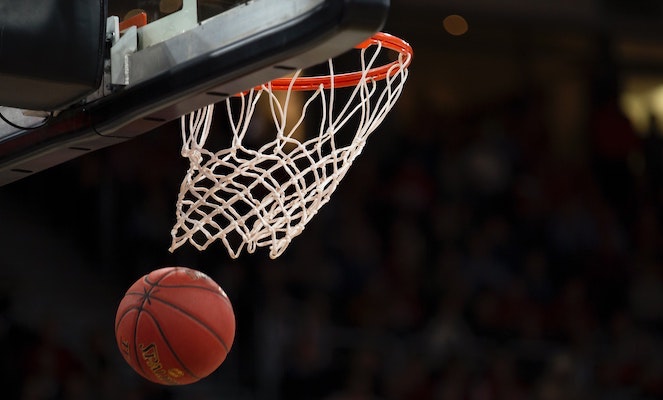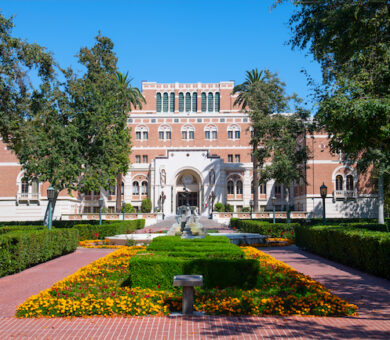Finding Fit – What Does It Mean?
When people say they are looking for “fit” in a university, what does that mean? Finding fit refers to choosing a college that meets most, if not all, of your priorities, needs, values and desires.
When you find a college that feels like the right fit, chances are you will have better performance, be happier, and probably stay at and graduate from the college you choose. Finding fit takes work, but is well worth it in the end.
When considering fit, most athletes look first and foremost at athletics. But there are other types of fit that you should think about: academic, athletic and cultural fit.
Below we break them down for you.
Academic Fit
Academic fit may be the easiest to research and figure out. For most colleges, academic majors and areas of study are listed on the college website. But major is not the only consideration.
As you journey through college, academics become more and more important to your future career, so you want to make sure the colleges are set up to help you achieve academic success.
You will want to ask college professors, admissions people, the athletic department, academic advisors, coaches and players lots of questions.
Questions to Ask
Does the college have your major? What are the eligibility requirements?
How much class is missed during the season?
Does the school offer internships or networking that aligns with your major?
If you have special academic requirements, do they offer resources to help?
Do they have study hall? How often, and how, is it set up? Where is the study hall held?
How good is the academic support? Who are the people that you’ll be working with?
Does the coaching staff talk about academics as a priority? Does the head coach?
Do the coaches know what the players are majoring in?
Ask the players if the coaches celebrate good grades, academic milestones or other academic success.
Athletic Fit
This is what fires athletes up. What are the opportunities athletically? This is what athletes think about first when they think about college fit and success at a university.
Be careful not to ONLY look at athletics.
Many athletes in the past have chosen a college solely based on a coaching staff or a head coach only to find out that the coach got fired or took another job. It is really important to make sure you like the whole university and all of its different facets.
It is a little harder to find out about the details of the athletic department than it is to figure out the academics, but, with good questions, you are on your way. Asking multiple people the same questions, and comparing answers, helps to form your results. Also, following players and coaches on social media can also give you some insight into athletic fit.
Questions to Ask
Are they the level of play that matches your ability and where you want to compete?
Can you work with the members of this team? Are they good teammates?
Have you been introduced to every player, and do you feel like you fit in with this group?
Are you comfortable with the coaches? Do they match your values?
Does this coaching staff seem like they would help if you really needed something?
Does the team need your position?
Do you know the expectations of the coach, and do they align with your desires?
Do you like the facilities?
Do you align with the mission and vision of the coaching staff?
Cultural Fit
Cultural fit is probably the most difficult type of fit to learn about because you are not yet living on campus. It’s hard to know how the culture is if you are just walking around campus or at a sporting event.
However, there are things you can look for when on campus. What is the makeup of the students? How big is the campus? How far away from home is it? All of your cultural needs are just as important as the academic and athletic needs.
It is the package that makes the experience.
As with the other types of fit, the more you can ask, the better equipped you will be when decisions must be made.
Questions to Ask
Does the college line up with your cultural needs? (For example: a religious affiliation, diversity and inclusion, an international population, the ethnicity you are comfortable with, etc.)
Is it the right distance from home?
Is it the right size?
Are you comfortable with the campus and community? Go beyond the team.
Can you see yourself going to school here if you did not play your sport?
Can you see yourself having friends here outside your college team?
Does the campus seem safe?
Does the campus seem like a fun place to live, work and play?
Can you see yourself tossing a hat at graduation time at this campus?
Does it look easy to get around campus?
Putting It All Together
With all of the three types of fit to consider, you will probably have questions that go beyond these lists, but, hopefully, they can jumpstart your thinking about what to ask. No question is a dumb question and no question should go unanswered to a degree that satisfies you.
Only you know what is important to you. Every little thing that has importance should be considered, no matter how small or big you think it is. The more characteristics that align with your thinking, your needs, your desires and your future, the better the choice you have.
When it comes time to narrow your choices, the decisions that have to be made will be easier for you if you have asked the questions and received the answers.
Many athletes have gone before you and have found the right fit. Many others have not chosen well. When I go back and ask what the difference is between finding fit and not finding fit, two things emerge.
First, most say they wished they would have started the process earlier to give them more time.
Second, they wished they would have asked more questions.
Take it from them. Start as early as you can and ask the questions.






